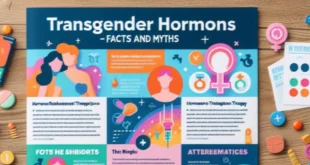A court of appeal in the southern French city of Toulouse has just ruled that a woman who was born male should be considered the mother of the child she conceived with her partner before her sex change.
In what is a first for France’s judiciary, a court of appeal recognised the right of a male-to-female transgender person – who conceived a child with her male reproductive system – to be named as the mother on the child’s birth certificate.
This couple from the Hérault department – who were initially heterosexual – have given birth to several children, the last one conceived after her father had changed sex, while keeping his male reproductive system.
The girl was born after the change of civil status of the husband, who had become a woman.
The civil registrar reportedly refused to make the changes on the child’s birth certificate. The change would have acknowledged the maternal status requested by the non-gestating woman.
Only the gestation mother appeared on the child’s civil status.
Since the transgender partner was not recognised as the father, her partner had to adopt her own biological daughter, as the adoptive mother.
The couple took legal action and in 2018, a court of appeal in Montpellier ordered that the transgender mother could be mentioned on the child’s birth certificate as the “biological parent”.
But in 2020, France’s highest Court of Cassation referred the case to the Toulouse court of appeal.
Yesterday’s decision recognises the husband, who had become a woman, on the child’s birth certificate as the mother – essentially ruling that two maternal filiations could be approved.
The civil status of older children
Since 2016, French law has authorised gender reassignment without sexual reassignment that has allowed distinct legal and biological realities to coexist.
But the legislation, according to the Court of Appeal, “leaves an undeniable legal vacuum” due to the lack of a provision relating to the filiation of children born after the change of gender in civil status, even though gestational motherhood is no longer exclusive.
The court considered that was in the best interests of the children – and their personal privacy – to make it imperative that children born to a couple in which one of its members is transgender, can have a double affiliation established with respect to both parents.
Source: RFI.FR
 Lesbian, Gay, Bisexual, Transgender & Intersex News Lesbian News, Gay News, Bisexual News, Transgender News, Intersex News, LGBTI News
Lesbian, Gay, Bisexual, Transgender & Intersex News Lesbian News, Gay News, Bisexual News, Transgender News, Intersex News, LGBTI News




